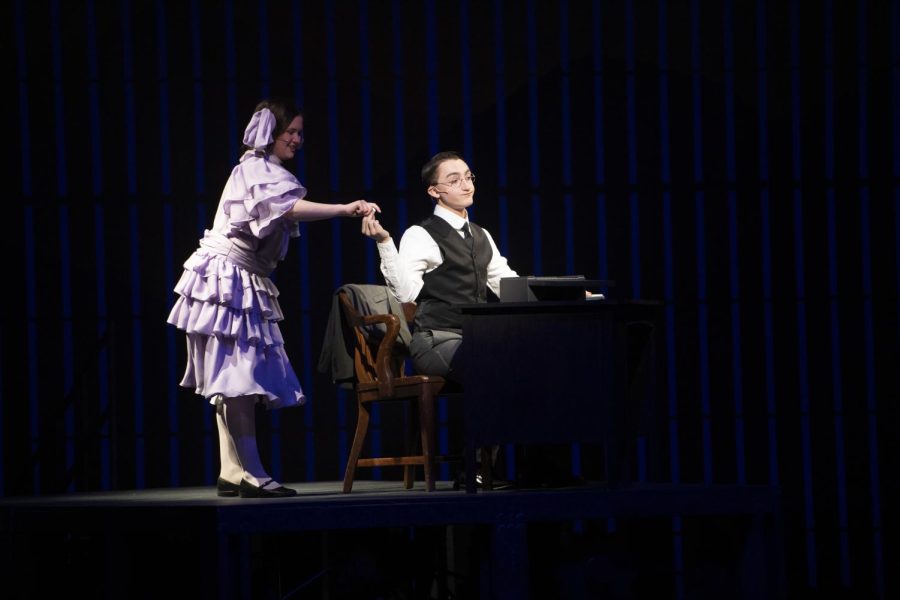Social justice comes to the stage in Kent State’s production of “Parade”
February 23, 2020
Theatre students challenged audience members to think about social justice during the opening night of their production of “Parade,” a musical that covers issues such as media sensationalism and antisemitism.
“It is about so many different issues, it’s kind of mind boggling,” said Fabio Polanco, director of the musical. “All these things come together not just in this show but in this actual historical incident. I don’t know that things would’ve transpired exactly the way that they did in the actual historical event if it wasn’t for all those elements.”
“Parade” tells the story of Mary Phagan, a young girl who was sexually assaulted and murdered in Georgia in 1913, and Leo Frank, a Jewish man who was accused of the crimes. The musical was written in 1998 by Alfred Uhry.
Phagan was a child laborer at the National Pencil Factory where Frank was the superintendent. She was killed in the factory after collecting that week’s wages from Frank. He was the last person to see her alive.
The musical focuses on his arrest, trial, and eventual lynching by members of the Marietta, Georgia, community in 1915.
The show also showcases the relationship between Frank and his wife Lucille Frank. Their relationship evolves during the trial and subsequent appeals as they work together to prove his innocence.
Statistics about lynchings, racist events, and legislation in the South were projected on the backdrop before the show started. More were projected onto the wall at the end of the musical to help wrap up the production.
“Something that is a case with all these issues is that they’re never not there,” Polanco said, “It’s just that there are times in our history where it bubbles up.” “We have to address them with hope for something better.”
In addition to covering antisemitism, the musical features the problem of industrialization in Georgia, which was occuring during the trial. It was a time when things were vastly changing in the South, which put minority groups such as Jews and African Americans at risk.
The production of “Parade” was made to coincide with the 50th anniversay of the May 4 shootings at Kent State and to be part of what Polanco called a year of “social justice programming.”
“We picked it because we think that the issues confronted in this are important and are relevant to the moment in which we find ourselves right now,” Polanco said.
The musical features antisemetic and racist language in addition to Confederate flags, violence and the discussion of sexual assault. There were many challenges when it came to putting together the show due to the content and how that might affect the performers, according to Polanco.
“I think the question that everyone wrestles with is, ‘How do we represent trauma on stage in a way that is healthy?’” Polanco said. “I wanted to make sure to empower all of us to take care of ourselves and each other through the process.”
Ryan Scoble, a graduate student who plays Tom Watson in the musical, was faced with the challenge of playing a character who is racist and antisemtic.
“You have to dissociate yourself enough from the character to say, ‘Obviously, that’s not me. That’s this character and his views,’” Scoble said.
“Parade” offers a study guide on the musical’s webpage.
The guide includes a director’s note as well as vocabulary used in the show for the audience to read before attending a performance to provide them with more context regarding the time period and more recent events in Georgia.
The show runs until March 1 in the E. Turner Stump Theatre inside of the Center for the Performing Arts. Tickets cost $10 for students and $18 for non-students and can be purchased online or at the Performing Arts Box Office, in the lobby of the Roe Green Center for the School of Theatre and Dance.
“These issues are not issues of the past,” Polanco said.
He called the musical “a chance to remind us, to not forget, to find out if we don’t know so that we can do better.”
Lindsey Sellman is a theater, music and dance reporter. Contact her at [email protected].

























